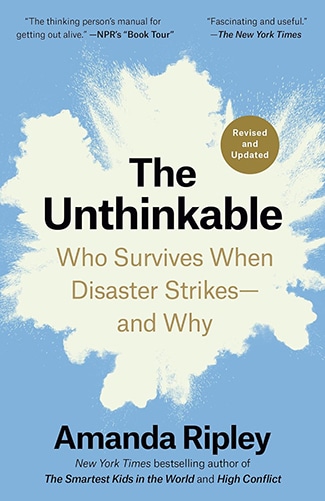Podcast #1,078: From Plane Crashes to Terrorist Attacks — Who Survives, and Why
Manage episode 497233063 series 3597082
My guest, Amanda Ripley, spent years researching how humans actually respond in emergencies, interviewing their survivors, as well leading researchers. In her book, The Unthinkable: Who Survives When Disaster Strikes—and Why, she uncovers the myths and realities of survival psychology and explores the individual and structural factors that shape people’s outcomes in unexpected crises. Today, Amanda explains why the biggest threat during an emergency isn’t panic but passivity — and how to overcome the tendency to be overly complacent and compliant. We discuss why you might actually want to read the airplane safety card, what we can learn from the surprising calm that prevailed in the World Trade Center towers on 9/11, how to improve your risk assessment, what influences if you’ll act heroically in an emergency, and much more. This episode will give you plenty to think about — and could even make the difference in how you respond if you’re ever faced with the unthinkable.
Resources Related to the Podcast
- AoM article on how to develop situational awareness
- AoM article on why people respond passively to emergencies
- Box breathing
- Beverly Hills Supper Club fire
- Rick Rescorla
Connect With Amanda Ripley
Listen to the Podcast! (And don’t forget to leave us a review!)
Listen to the episode on a separate page.
Subscribe to the podcast in the media player of your choice.
Transcript Coming Soon
This article was originally published on The Art of Manliness.
9 episodes







